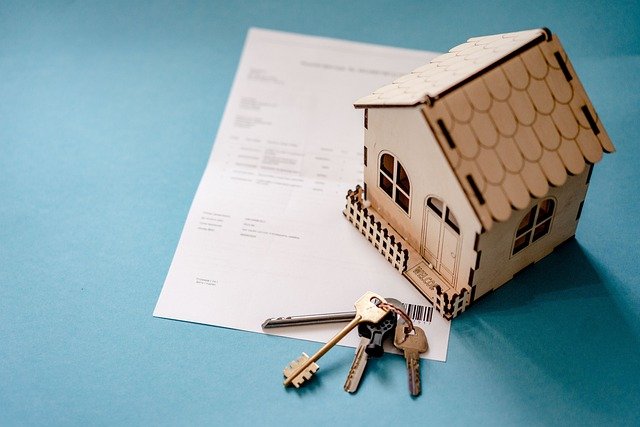Buy a House on One Income with Rent-to-Own South Africa: Complete Guide
Rent-to-own can offer a gradual path to homeownership on a single income, but it requires a clear understanding of how agreements are structured and where the risks lie. This guide explains the model (monthly rent plus an option to purchase), typical eligibility and affordability checks, how prices and timelines are set, and which contract clauses to review carefully—option fee, maintenance responsibilities, indexation, defaults, and exit terms. It also outlines practical due diligence steps and how this route compares with traditional mortgages and other pathways, so decisions are informed rather than rushed.

How rent-to-own works in South Africa
Rent-to-own arrangements in South Africa typically involve two main components: a lease agreement and an option to purchase. The tenant pays monthly rent, with a portion often credited toward the eventual purchase price. An upfront option fee, usually ranging from 2% to 7% of the property value, secures the right to buy the property within a specified timeframe. This fee may be non-refundable if the tenant chooses not to exercise the purchase option. The arrangement allows tenants to lock in a purchase price at the contract’s beginning, protecting against future property value increases while providing time to improve creditworthiness or save for a deposit.
Eligibility checks and affordability on one income
Single-income earners must demonstrate stable employment and sufficient monthly income to cover rent payments, typically requiring income that’s three times the monthly rental amount. Rent-to-own providers generally have more flexible credit requirements than traditional lenders, making them accessible to individuals with impaired credit histories. However, applicants still undergo credit checks, employment verification, and affordability assessments. Providers may accept applicants earning as little as R15,000 to R20,000 monthly, depending on the property value and rental amount. Documentation requirements include recent payslips, bank statements, identity documents, and employment letters. Some providers also consider additional income sources like investment returns or side businesses when assessing affordability.
Key contract clauses option fee price term maintenance
Rent-to-own contracts contain several critical clauses that require careful attention. The option fee clause specifies the upfront payment amount and conditions for refundability. Purchase price terms outline whether the price is fixed or subject to annual increases, with many contracts including escalation clauses. The contract term typically ranges from three to five years, during which the tenant must decide whether to exercise the purchase option. Maintenance responsibilities are clearly defined, with tenants often responsible for minor repairs and landlords handling major structural issues. Rent credit clauses specify how much of each rental payment applies toward the purchase price, usually between 10% and 25%. Early termination clauses outline penalties and conditions under which either party may exit the agreement.
Risks and safeguards due diligence and legal review
Rent-to-own arrangements carry specific risks that require careful consideration and mitigation. Property condition deterioration during the rental period may affect the eventual purchase value, making thorough initial inspections essential. Market value fluctuations could result in paying above-market prices if property values decline. Legal safeguards include having qualified attorneys review all contracts before signing, ensuring compliance with South African property and consumer protection laws. Due diligence involves verifying the seller’s legal ownership, checking for existing bonds or liens, and confirming municipal rates and taxes are current. Professional property inspections help identify potential structural issues or maintenance requirements that could affect future costs.
Comparison with mortgages shared ownership and other pathways
Traditional home loans typically require deposits of 10% to 20% and strict credit criteria, while rent-to-own arrangements often accept smaller upfront payments and more flexible qualification requirements. Shared ownership schemes, offered by some employers and government programs, allow partial property ownership with graduated purchase options. Government housing subsidies provide alternatives for qualifying low-income earners but involve lengthy waiting periods and location restrictions. Rent-to-own arrangements offer more immediate access to homeownership and greater property choice flexibility compared to subsidized housing options.
| Pathway | Provider Type | Typical Requirements | Estimated Costs |
|---|---|---|---|
| Rent-to-Own | Private Companies | R15,000+ income, 2-7% option fee | Option fee: R20,000-R50,000 |
| Home Loan | Banks/Lenders | R25,000+ income, 10-20% deposit | Deposit: R150,000-R300,000 |
| Shared Ownership | Employers/Gov Programs | Varies by scheme | 25-50% of property value |
| RDP Housing | Government | Income under R3,500 | Subsidized/Free |
Prices, rates, or cost estimates mentioned in this article are based on the latest available information but may change over time. Independent research is advised before making financial decisions.
Rent-to-own arrangements provide a viable pathway to homeownership for single-income earners in South Africa, offering flexibility and accessibility that traditional financing may not provide. Success depends on thorough contract review, realistic affordability assessments, and careful consideration of long-term financial implications. While these arrangements involve specific risks, proper due diligence and legal guidance can help ensure favorable outcomes for aspiring homeowners seeking alternative financing solutions.




